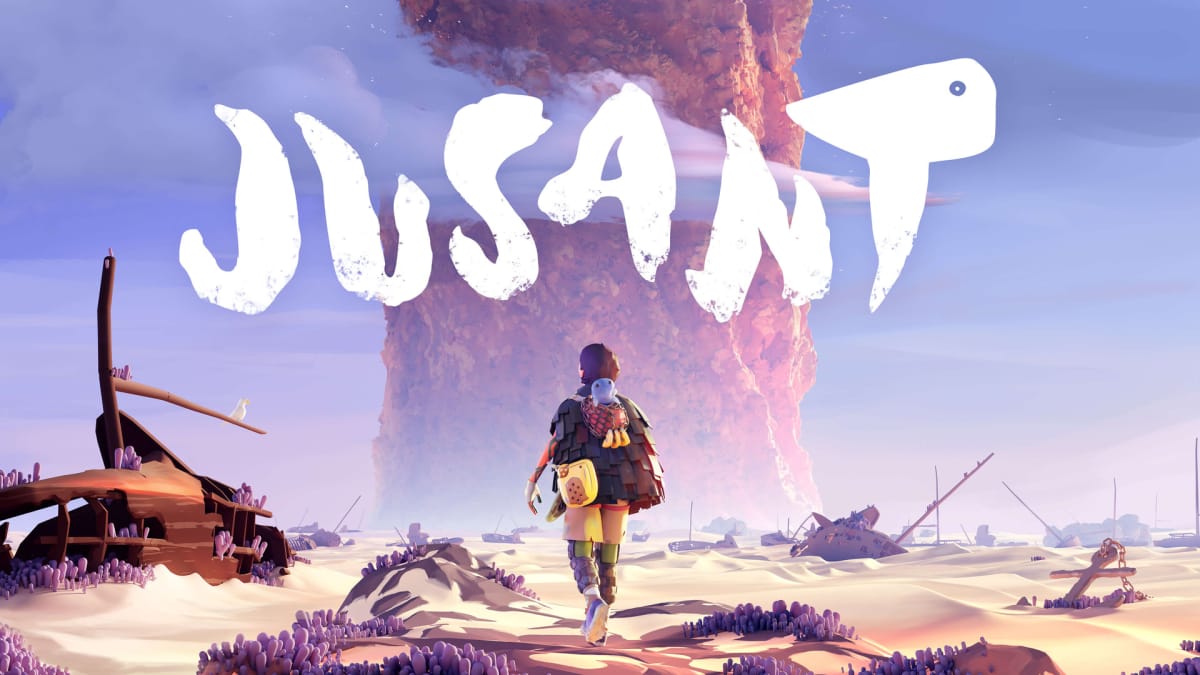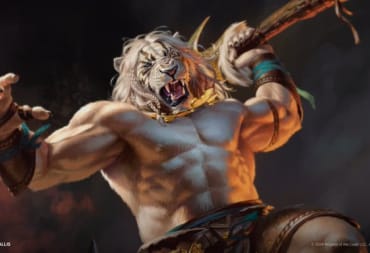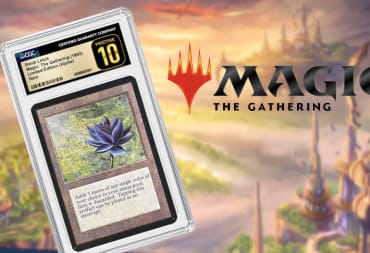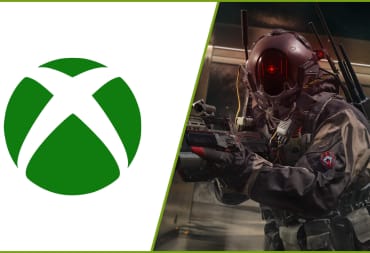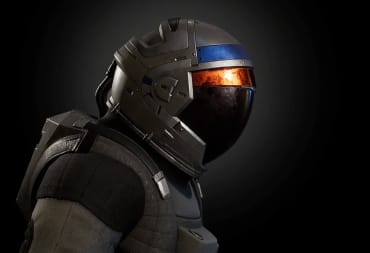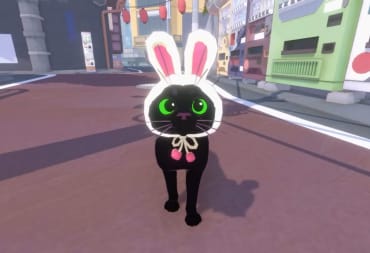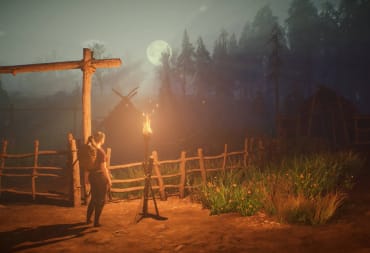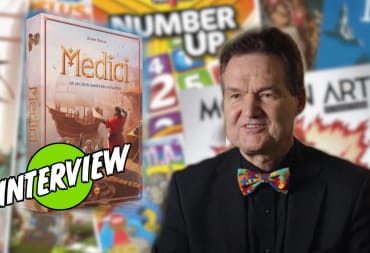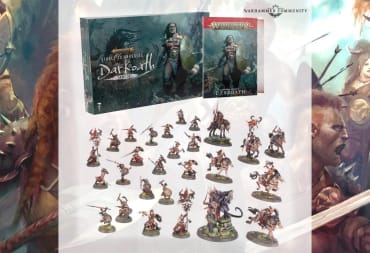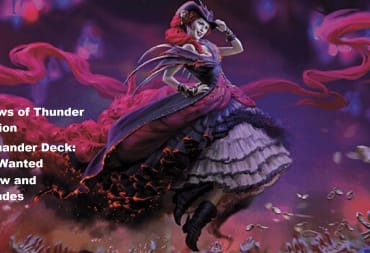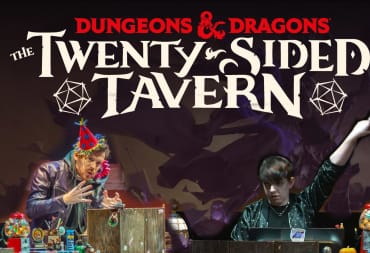2023 is shaping up to be Don't Nod's year, with a fat handful of games showcasing a new direction for the studio. Starting in June with Harmony: The Fall of Reverie, the warm reception received is the beginning of a trilogy of releases, set to be bookended by Banishers: Ghosts of New Eden early next year. Before that, however, there is Jusant, a potential peak in more ways than one, but what is Jusant exactly?
Detailing the adventures of a nameless nomad and their attempts to scale a mountain dotted with remnants of a past society, Jusant presents a lot of mystery in its world and philosophy. To try and clear the air, I spoke with co-directors Kevin Poupard and Mathieu Beaudelin, and art director Edouard Caplain to provide clarity in what Jusant wants to be, and what it means for Don't Nod.
What is Jusant to Don't Nod?
After previewing Jusant, the first thing that became immediately clear was the departure of Don't Nod's previous narrative structures, while still feeling like a game they made.
“It was very important for us to keep the identity of the studio,” Poupard and Beaudelin stated, “which is telling stories that have a real purpose – and a strong message – linked to the gameplay.”
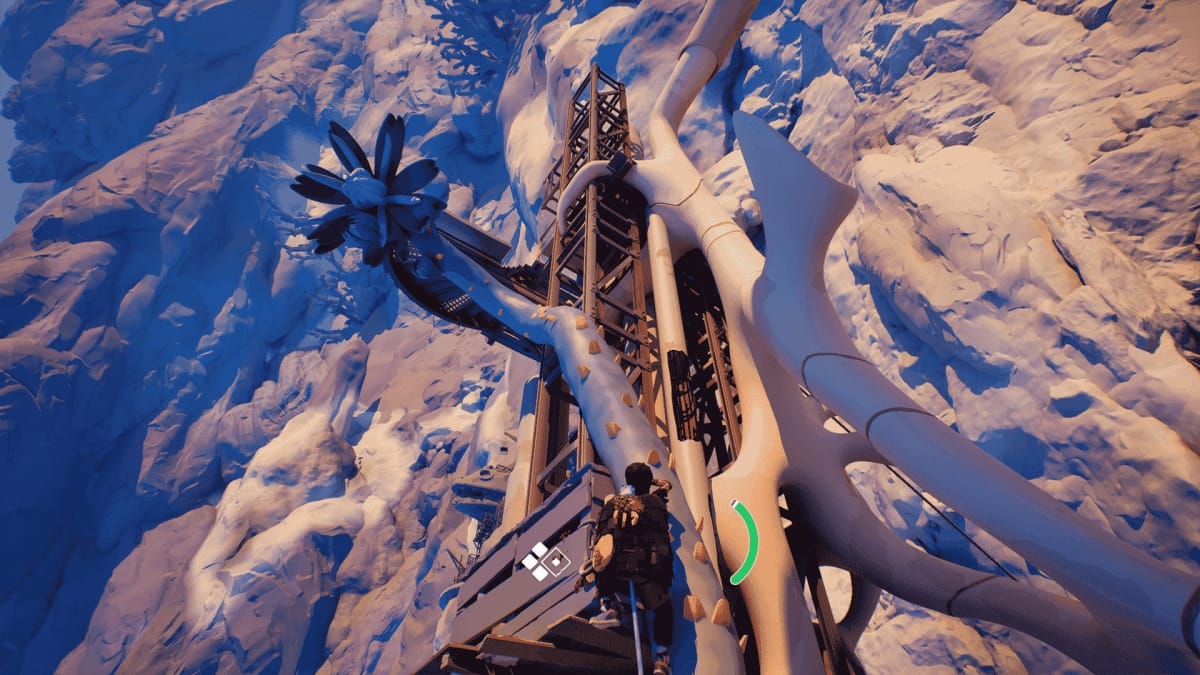
Though the pair stated that tackling a different narrative style brought new challenges, they told us that prioritizing the strength of the core gameplay loop was their first priority.
“We wanted to try to start first with a single gameplay loop strong enough to last for the entire duration of the game.”
This can be said of Don't Nod's previous games as well. The pair cite the first season of Life Is Strange specifically, and how the rewind mechanic highlights Max Caulfield’s growing doubt and growth as an adult through a formative time. Similarly, Jusant’s climbing mechanics aim to give players freedom to explore and discover the game's story and world in a fresh way that is fluid, instinctive, and intrinsically linked to the gameplay experience itself.
“The main challenge was trying to no longer rely on dialogues and cinematic phases and leave an even more important place for the game’s environments,” Poupard and Beaudelin said.
From there, Jusant finds itself having more in common with past titles but chooses to let the world tell its story for the player instead. A good comparison in its literality outside of Don't Nod releases would be the 2018 release Celeste; an affirmation of reaching a peak.
Tying Contexts in a Knot
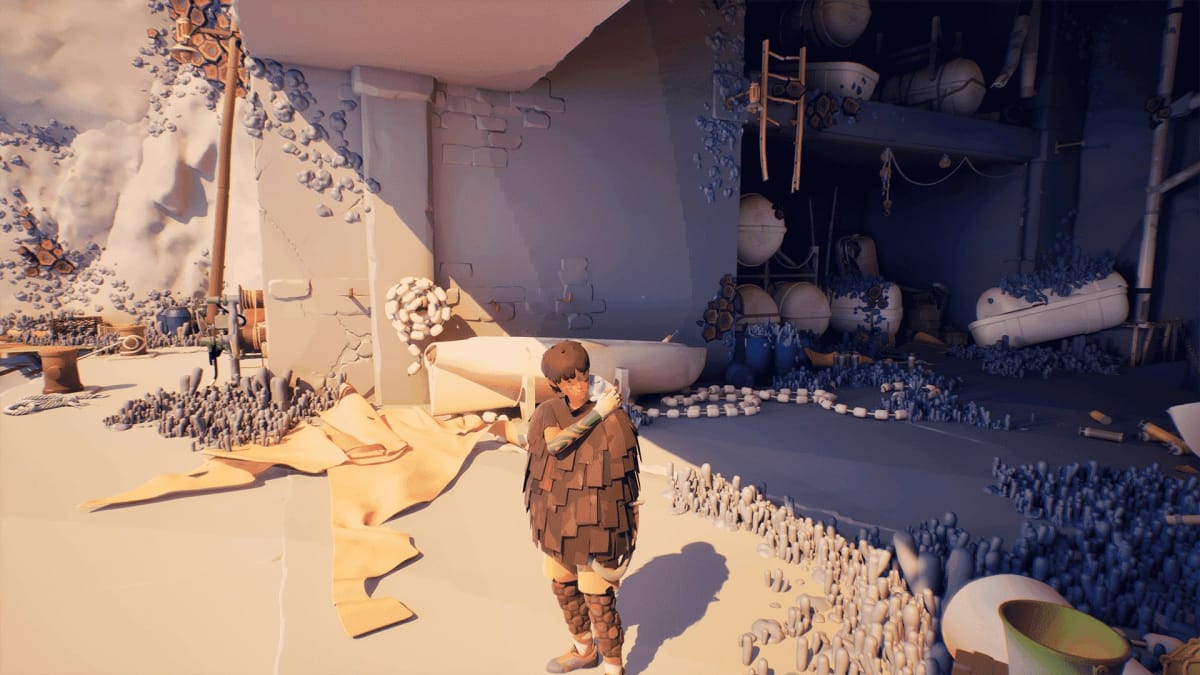
Still, its complete lack of dialogue opens up a lot of opportunities, with Poupard & Beaudelin believing it allows for both the player and character to understand together as they discover more about the game’s world in tandem.
One way this is showcased is through conch shells, which house small soundscapes from past lives, with the pair excited to see how players perceive them in their own unique ways and draw their own conclusions as to what different aspects of the game could represent.
During my time with the preview, Jusant was focused on not only creating an immersive atmosphere and sense of scale while traversing its landscapes, but a sense of rich history that once belonged to them. Details like climbing pitons left behind by civilizations no longer present lend themselves to sparking the player's intrigue in what once was.
"We tried to make sure that every action said something about [Jusant's] world and our lore.”
Lending into the choice of utilizing climbing to tell this story, the puzzle side of Jusant sees players optimizing any and all options of how to deal with the challenges laid out for them, and mastering the tools at their disposal. These tools, which are introduced early on, will allow for exploration of different climbing styles to be used in a variety of situations.
“Through the game, players will encounter different environments that will renew their way of playing, and will bring challenges in the puzzle's resolutions,” they said.
Despite the game having a linear progression, the team wants players to take their own approach to not just the story but the gameplay as well, stating “the intention was to discover layer by layer, the details of this universe in which the players find themselves.”
Creating an Ocean Without Water
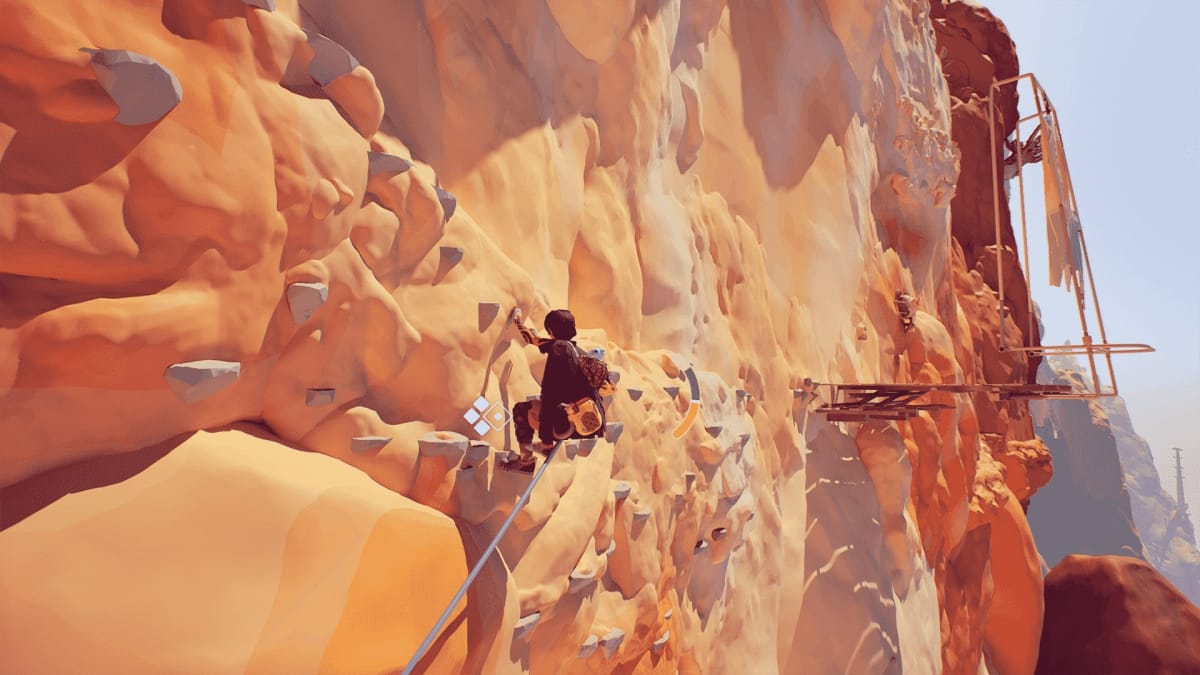
Beyond the metaphors of what Jusant’s mountains represent, it’s their visual direction which also deserves insight. Art director Edouard Caplain creates an alternate world within the game, separated from Earth, while still retaining Earth-like objects and structures.
Taking natural oceanic structures to inspire the feeling of a maritime theme despite the absence of an ocean, he stated, “giving the impression of water without the use of water was definitely an interesting one. Most of the natural designs in Jusant revolve around the maritime theme: algae, seaweed, corals and dry lava rocks.”
Caplain stated the intention of Jusant's art direction was “to show something that felt real but wasn’t something we’d seen before,” adding that the work of science-fiction artists was one of the team's influences in crafting this effect. Going further, Caplain specifically cites seminal French science-fiction artist Jean Giraud, better known as “Moebius,” saying that:
“[Moebius’] vision of a different ‘present time,’ when reading his comics, you can understand what most things are being used for. You can recognize a coffee machine, even if it doesn’t look like one bought from the store next door. His work has been a fantastic inspiration for the artists to create Jusant’s own different ‘present time.’”
Concluding the interview, I noted that despite Jusant's death valleys, raging winds, and searing sun, there was still a shining hope prevalent throughout. Poupard and Beaudelin agreed with the sentiment, stating that it was "exactly the kind of sensation we want players to feel." The pair hope that, whether it's Jusant's storytelling or its ecology, the mere existence of debate regarding what Jusant's world holds and represents would offer them contentment.
Jusant will release on Oct. 31, 2023, for PlayStation 5, PC, and Xbox Series S|X.
Have a tip, or want to point out something we missed? Leave a Comment or e-mail us at tips@techraptor.net
